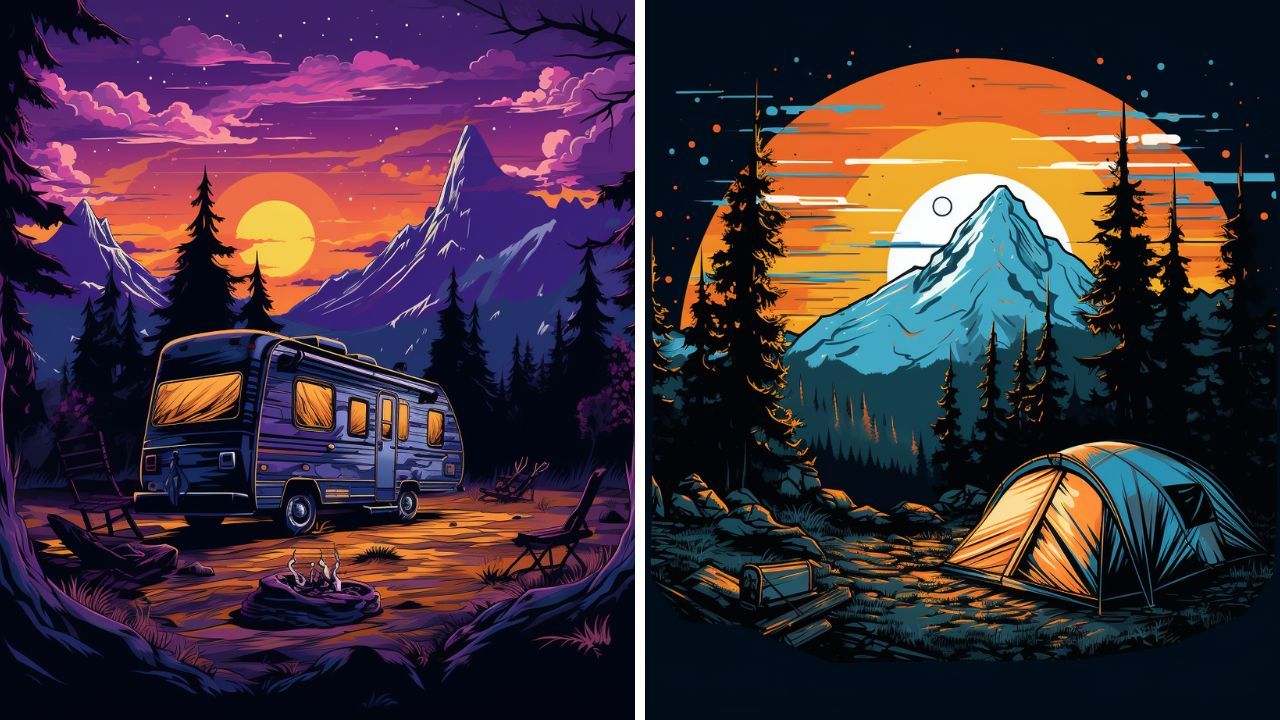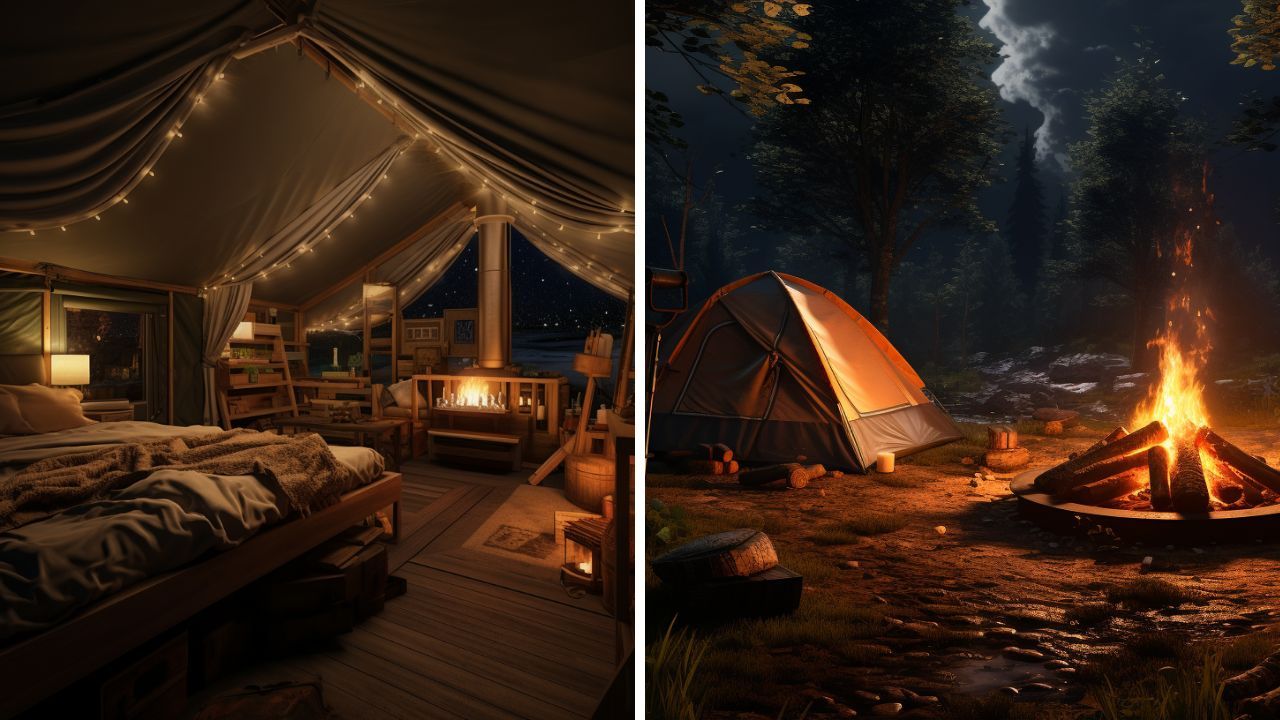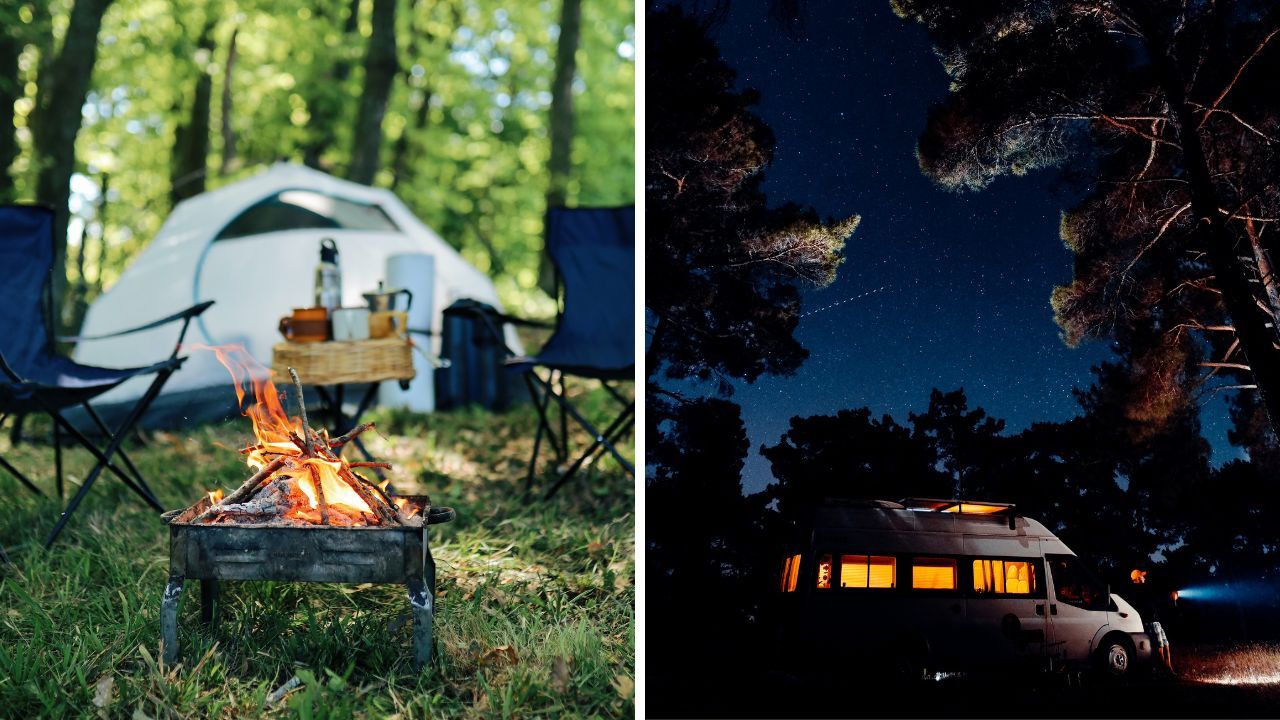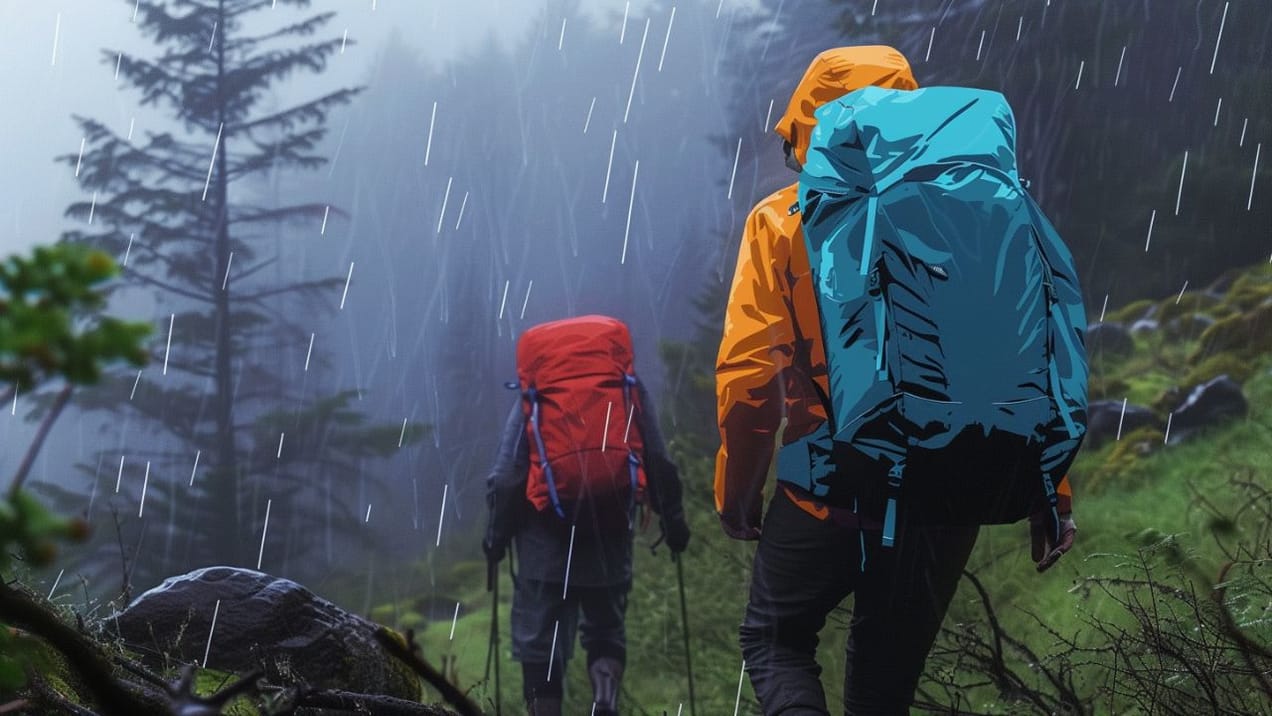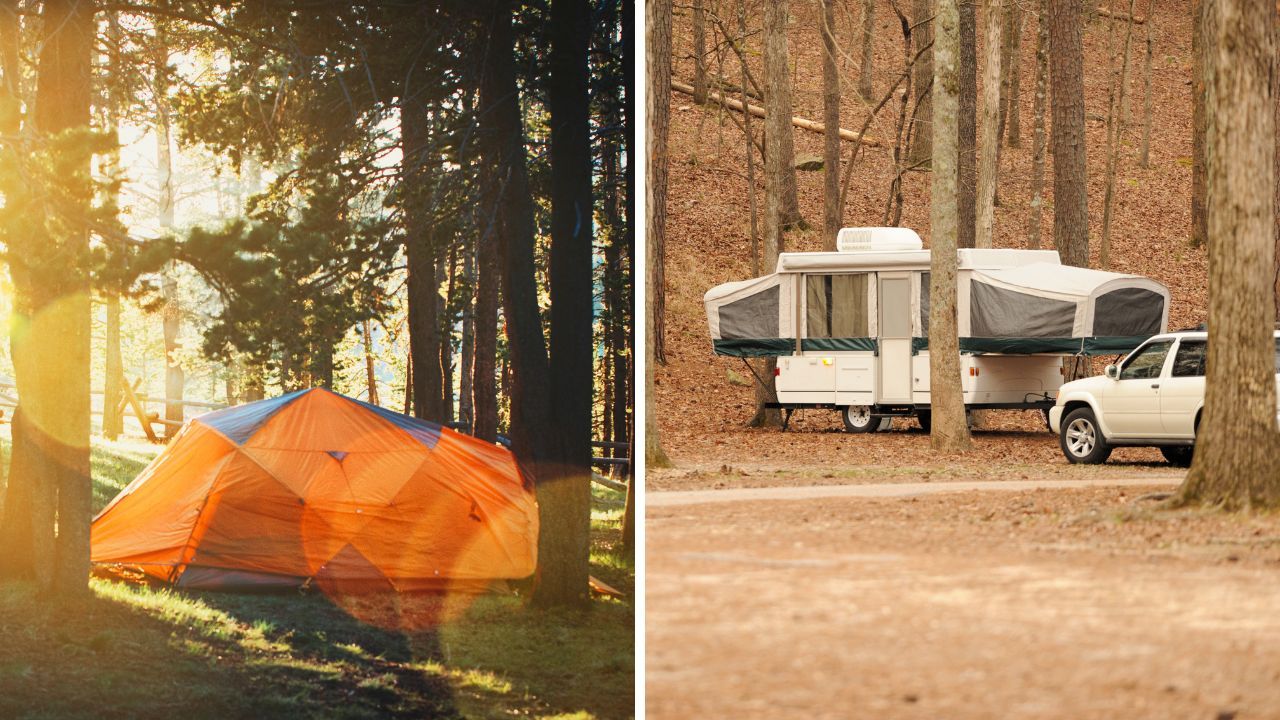
Tent vs Pop-Up Camper: Which One Are You?
Discover the pros and cons of tent vs pop-up camper to make your next camping trip unforgettable. Choose the best for your adventure!
You're probably in the midst of planning your next great outdoor escapade and pondering one of the classic dilemmas – should you go with a tent or a pop-up camper?
It's not just about picking between canvas walls and a wheeled shelter; it's about choosing the experience that will best suit your adventure style.
Selecting the right camping gear is crucial. It can mean the difference between a trip filled with cherished memories and one you'd rather forget.
So, let's dive into the nitty-gritty of what makes tents and pop-up campers unique. I've tent camped and used pop-up campers throughout my life. For me, I always come back to the tent for simplicity and access to more wild places.
But I'll walk you through the basics, the perks, the drawbacks, and everything in between to help you make an informed decision for your next journey into the wild.
Key Takeaways
- Comfort and Convenience: Pop-up campers offer more comfort and amenities like beds and kitchens, making them ideal for families and longer trips, whereas tents provide a more authentic outdoor experience, closer to nature.
- Cost Considerations: While tents are generally more affordable and have lower maintenance costs, pop-up campers, though more expensive upfront, can be a worthwhile investment for frequent campers due to their durability and comfort.
- Mobility and Flexibility: Tents win in terms of ease of transportation and flexibility, being suitable for a variety of locations, from remote areas to established campgrounds. Pop-up campers, on the other hand, require a tow vehicle and are better suited for established campsites.
- Setup and Weather Readiness: Pop-up campers take longer to set up but offer more protection against inclement weather. Tents are quicker to pitch but vary in their ability to withstand harsh weather conditions, depending on quality and design.
Understanding the Basics
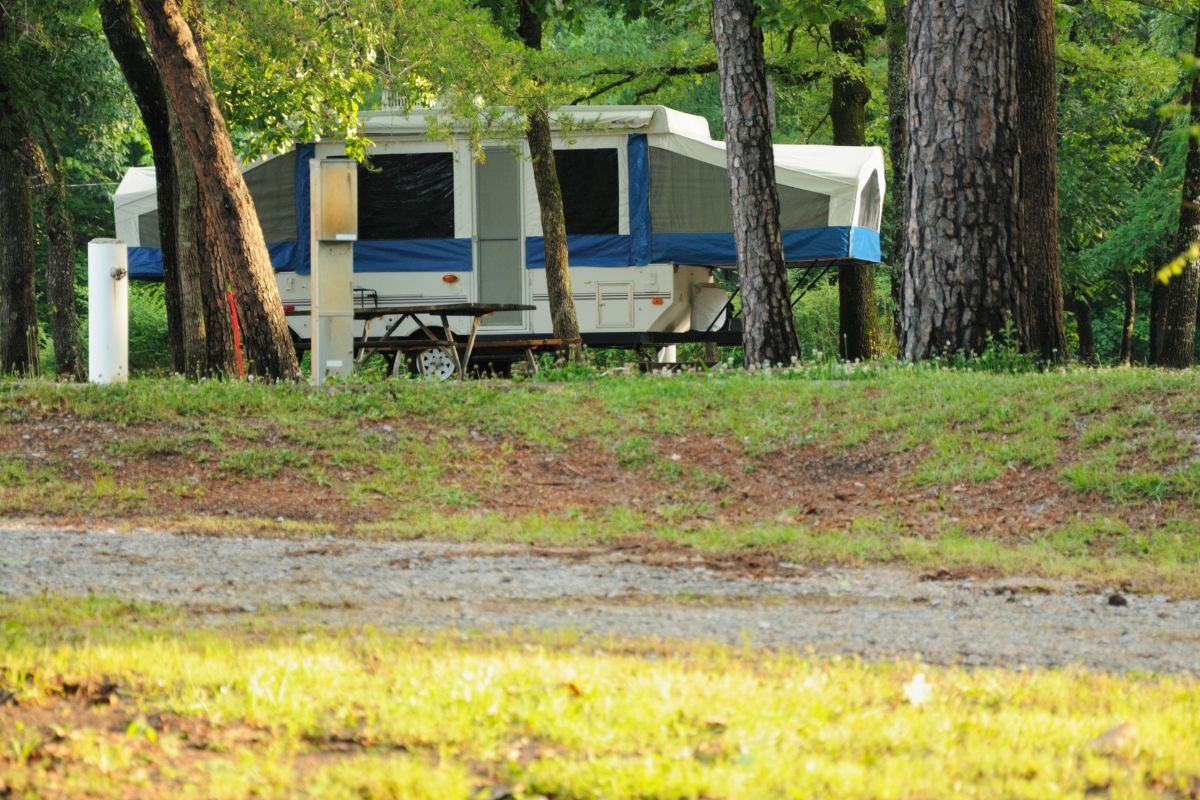
What is a Pop-Up Camper?
Imagine this: you've arrived at your campsite after a long drive. You want comfort, but you also crave the thrill of the outdoors. Enter the pop-up camper.
A pop-up camper is like a compact, cozy home on wheels that you tow to your destination. It's a step up from traditional tent camping, offering more amenities while still keeping you close to nature.
Features of Pop-Up Campers
- Portability: These campers are designed to be lightweight, making them towable by most vehicles.
- Space: They unfurl to reveal sleeping areas, often with built-in beds and sometimes even small dining spaces.
- Amenities: Depending on the model, you might find kitchenettes, refrigerators, and sometimes even heating or air conditioning.
Advantages
- Comfort: They offer a more comfortable sleeping surface compared to ground tents.
- Protection: Better suited for inclement weather, providing a sturdier shelter against wind and rain.
- Convenience: Features like built-in storage and cooking facilities add a level of convenience tent camping can't match.
Disadvantages
- Cost: They're more expensive than tents – both in upfront cost and maintenance.
- Storage and Maintenance: You'll need space to store them, and they require regular maintenance.
- Setup Time: While quicker than some large tents, setup can still be more time-consuming than smaller tents.

The Traditional Tent Camping Experience
Now, let's shift gears to the quintessential outdoor experience – tent camping. It's you, a piece of fabric, and the great outdoors. It's as close as you can get to nature without building a cabin in the woods.
Overview of Tent Camping
- Versatility: Tents come in all shapes and sizes, from tiny one-person shelters to large family-sized dwellings.
- Connection to Nature: Tent camping offers an unparalleled connection to the outdoors.
- Mobility: Tents can be packed into a backpack, making them ideal for hike-in campsites.
Types of Tents and Their Features
- Material: Modern tents are made from lightweight, durable materials like nylon or polyester, often treated for water resistance.
- Rain Protection: Features like rain flies and sealed seams are crucial for staying dry.
- Design Variations: From dome tents for wind resistance to cabin-style tents for headroom, there's a design for every need.
Benefits
- Cost-Effective: Generally more affordable than campers.
- Close to Nature: They offer a more immersive outdoor experience.
- Lightweight and Portable: Easy to transport, making them ideal for backpacking or remote camping.
Challenges
- Exposure to Elements: Tents offer less protection against harsh weather.
- Comfort: Sleeping on the ground can be less comfortable, though this can be mitigated with good-quality sleeping pads.
- Setup and Takedown: While some tents are designed for quick setup, others can be more complex and time-consuming.
Tip: When considering a tent, think about the locations you plan to explore. Are you heading into the backcountry or sticking to established campsites? Your destination can greatly influence the type of shelter that's best for you.
Comparing Key Aspects
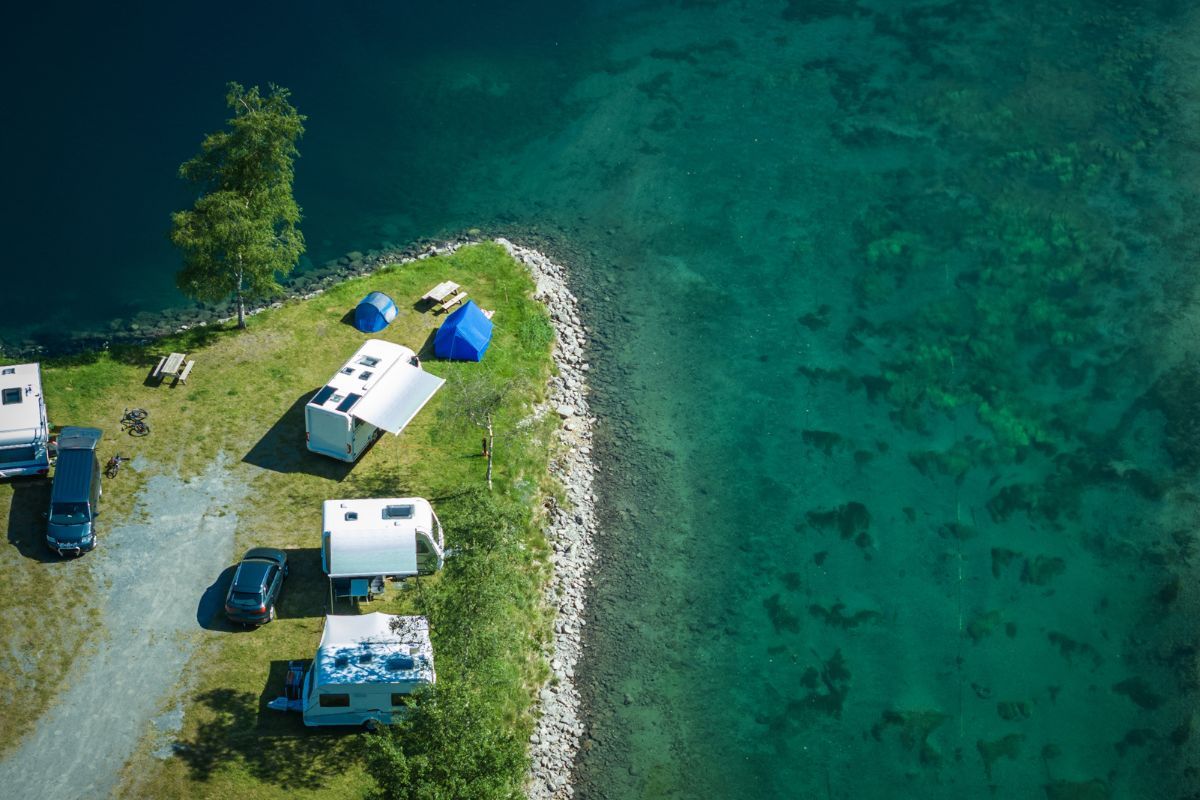
Now that you're familiar with the basics of both tents and pop-up campers, let's get into the details that can make or break your camping experience.
It's all about finding that sweet spot of comfort, convenience, and readiness for whatever Mother Nature throws your way.
Space and Comfort
When it comes to space and comfort, pop-up campers are like a cozy den on wheels.
They typically provide built-in beds (often more than one), and some even come with features like a small kitchenette.
Imagine waking up and not having to crawl out of a sleeping bag on the ground but instead, stepping down from a real mattress. That's a game-changer, especially after a long day of hiking!
Tents, on the other hand, offer a more authentic camping experience.
Sure, you might be sleeping on an air mattress or a sleeping pad, but there's something special about lying close to the earth, isn't there?
And don't worry about feeling cramped – larger tents can have multiple rooms and enough space to stand up in, making them great for family trips or camping with friends.
Tips for Choosing
- Group Size: If you're traveling with a large group or your family, a pop-up camper can provide the necessary space and separation for comfort.
- Adventure Style: Solo or duo adventurers might prefer the simplicity and closeness to nature that tents offer.
Setup and Takedown
Setting up a pop-up camper can vary from a simple crank system to more complex setups requiring a bit of muscle and know-how.
It's usually straightforward but can take around 30 minutes to an hour, depending on the model and your proficiency.
The advantage? Once it's set up, your cozy shelter is ready, complete with beds and other amenities.
Tent setup, on the other hand, can be a fun challenge or a test of patience.
Modern tents are designed to be more user-friendly, with color-coded poles and quick-clip designs.
Some can even be pitched in just a few minutes! The catch? The larger and more complex the tent, the longer and more intricate the setup.
Making the Right Choice
- Convenience vs. Authenticity: Consider what's more important for you – the convenience and ease of a pop-up camper or the authentic experience of pitching a tent under the stars.
- Setup Time: If you're moving locations frequently, a tent might be more practical. For longer stays, the one-time setup of a pop-up camper can be a big plus.
Weather Considerations
When the weather turns sour, being well-prepared makes all the difference.
Pop-up campers offer sturdy shelter, often with solid roofs and walls that can withstand heavy rain and winds. Plus, being elevated off the ground means you're less likely to deal with flooding or ground moisture seeping in.
Tents have come a long way in weather resistance. Look for features like a full-coverage rain fly, strong pole structures, and waterproof materials. Dome-shaped tents are particularly good at shedding rain and resisting wind.
Safety and Durability
- Pop Up Campers: Generally more durable in harsh conditions, offering better protection and a sense of security.
- Tents: Modern materials and designs have significantly improved tent durability. However, in extreme conditions, a tent might not offer the same level of protection as a camper.
Practicality and Mobility
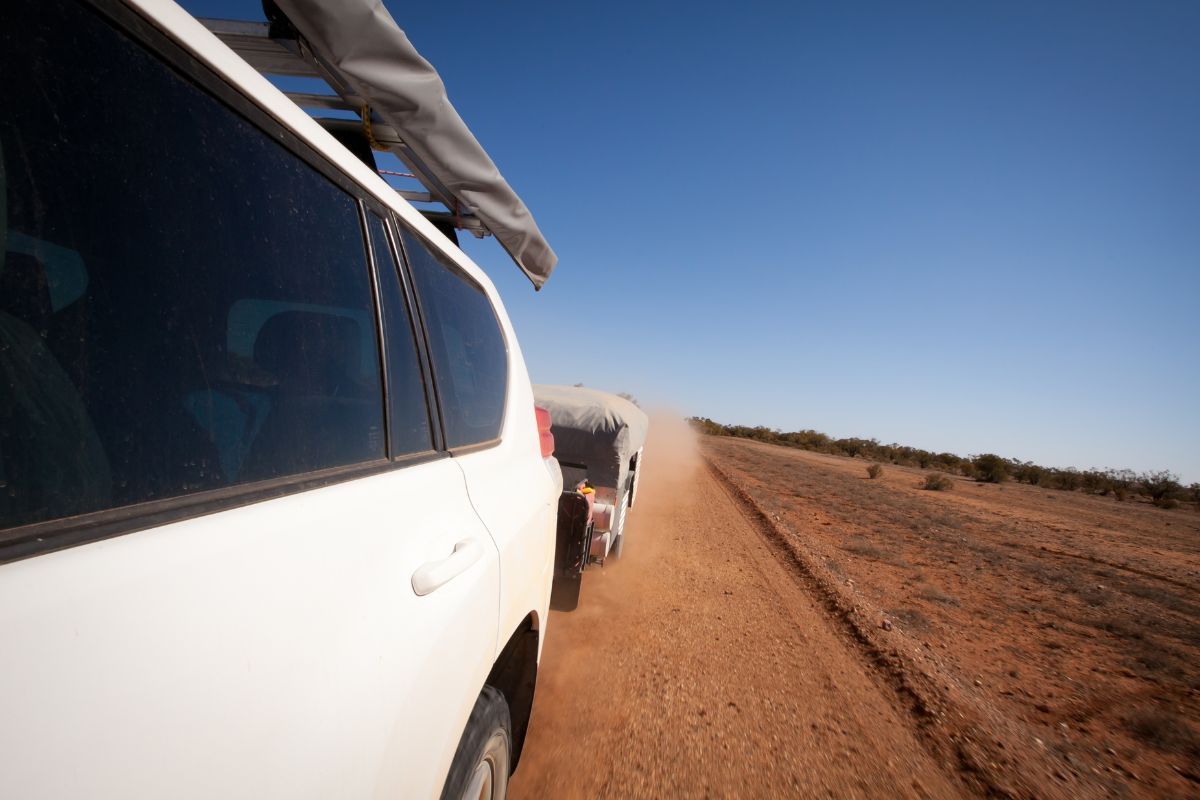
You've got a handle on the comfort and weather readiness, but how about getting to your dream destination?
This section is all about the nuts and bolts of travel and transportation. Whether you're a road warrior or a trailblazer, understanding the logistics of your camping setup is key.
Travel and Transportation
First up, let's talk about pop-up campers. You're going to need a vehicle with enough oomph to tow it. This doesn't necessarily mean a big, burly truck – many smaller SUVs and even some sedans can handle a lightweight pop-up camper.
However, it's crucial to check your vehicle's towing capacity before you hitch up. Overloading your vehicle is not only unsafe, but it can also lead to costly repairs down the line.
In the world of tents, life is a bit simpler. Even the largest family tent can usually be condensed into a carry bag that fits in your car's trunk or even in a backpack.
This makes tents a go-to for those who prefer the flexibility of packing up and moving on a whim.
Tips for the Road
- Check Your Specs: Always verify your vehicle's towing capacity and the camper's weight before hitting the road.
- Pack Smart: With tents, remember that compact and lightweight is the way to go, especially if you're hiking to your campsite.
Camping Locations and Flexibility
Pop-up campers are fantastic for established campgrounds. These sites often come with amenities like electrical hookups, water, and sometimes even Wi-Fi.
However, if you're eyeing a remote, off-the-beaten-path location, a camper might not be as feasible.
Tents are the champions of versatility here. Whether it's a high-end campground with all the bells and whistles or a secluded spot deep in the wilderness, a tent can go pretty much anywhere you can.
Flexibility in Choosing Camping Spots
- Remote Areas: If you're drawn to the road less traveled, a tent is your best friend. Lightweight, easy to carry, and able to be pitched almost anywhere, tents offer unparalleled flexibility.
- Established Campgrounds: For those who like a few creature comforts and an easier setup, pop-up campers are ideal. Just make sure the campground can accommodate them.
Amenities and Features
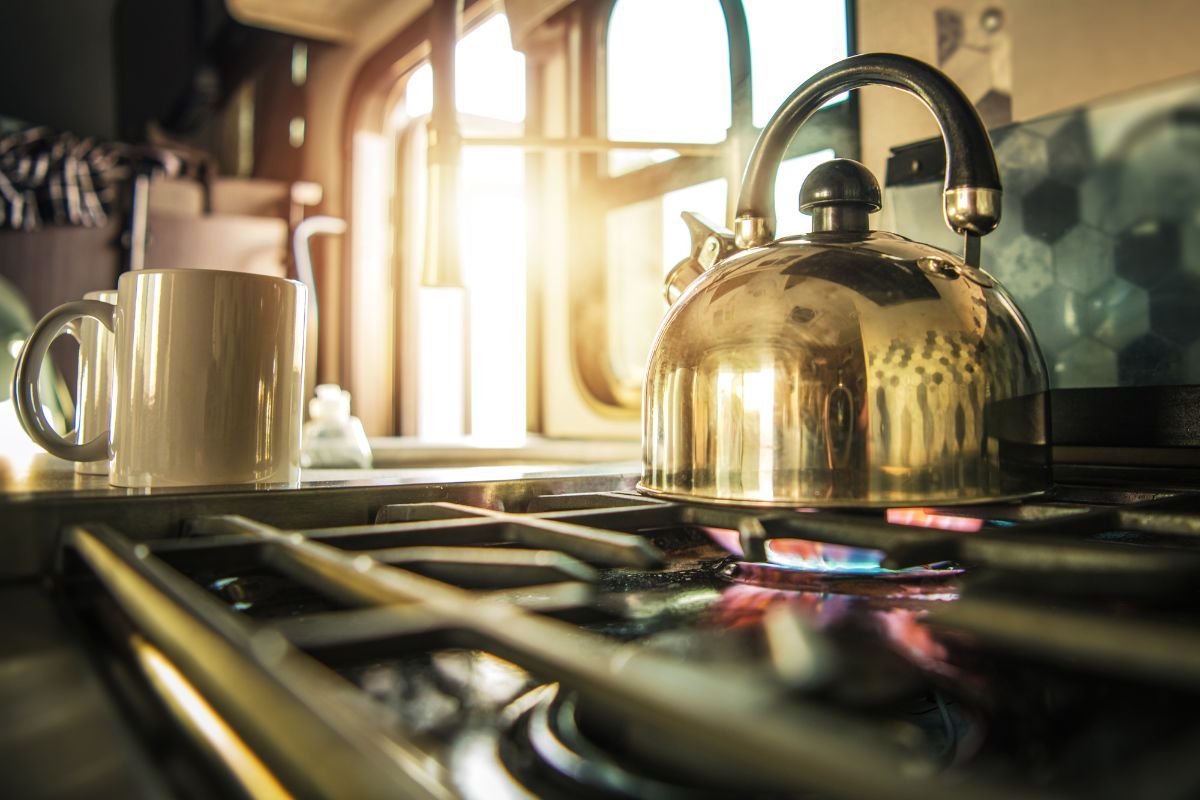
Alright, let's get cozy and talk about the creature comforts that can transform your camping experience from just okay to absolutely amazing.
Whether it's a pop-up camper or a tent, the amenities and features you choose can make a world of difference.
Living and Sleeping Comfort
In a pop-up camper, you're stepping into a mini-home. You might find a dinette table for card games and meals, maybe even a cassette toilet for those middle-of-the-night needs.
And let's talk about sleeping arrangements – beds in pop-up campers are often off the ground, which can be a game-changer for comfort and warmth.
Tent camping is all about getting back to basics, but that doesn't mean you have to skimp on comfort. Sure, you might be sleeping on an air mattress or a sleeping pad, but with the right setup, it can be just as cozy.
Some larger tents even offer room dividers for privacy, creating separate "rooms" in your outdoor abode.
Tips for Maximum Comfort
- Invest in Good Bedding: Whether in a camper or a tent, a comfortable sleeping setup can improve your sleep quality dramatically.
- Consider the Layout: In campers, look for a layout that suits your needs. In tents, think about space and airflow for the best experience.
Additional Features and Customization
Pop-up campers often come with the added luxury of running water and built-in storage, making it easier to keep your space tidy and your gear organized. Some even have small kitchen areas, allowing you to whip up a meal without stepping outside.
In the realm of tents, customization is key. You might not have built-in features, but you can create your own setup with portable stoves, water containers, and storage bins. It's like building your own camping kit tailored exactly to your needs.
Customization Possibilities
- Pop-Up Campers: Many models offer options for upgrades and customization. Think solar panels, upgraded mattresses, or even outdoor showers.
- Tents: Get creative with your setup. Use tarps for additional shelter, invest in high-quality camping furniture, and organize your space with compact storage solutions.
To Wrap It Up: Whether you're in a tent or a pop-up camper, the amenities and features you choose are all about making your camping experience as enjoyable and comfortable as possible.
So, think about what you need to feel at home in the great outdoors. A little planning and customization can go a long way in creating your perfect camping haven!
Cost and Maintenance
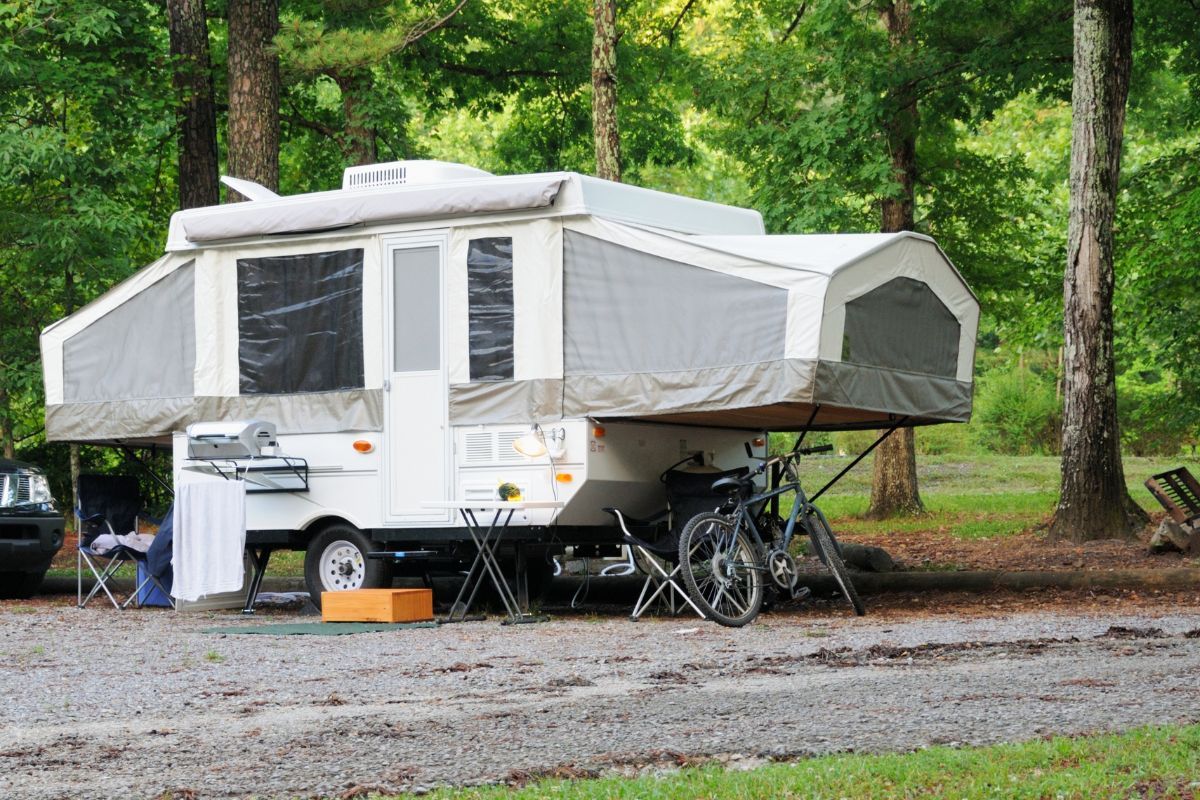
Money matters, right? You want to invest in camping gear that not only fits your outdoor lifestyle but also makes sense for your wallet in the long run.
Let's break down the costs and maintenance aspects of pop-up campers versus tents.
Initial Investment and Running Costs
So, you're eyeing a pop-up camper. Prepare to spend more upfront compared to a tent. We're talking a few thousand dollars, and that's just for the camper itself.
Add in the costs of a tow vehicle if you don't already have one, plus insurance, and the price tag grows.
Tents are much more wallet-friendly. A high-quality small tent might set you back a couple hundred dollars, while larger, more elaborate tents can go up to a thousand or more. Still, that's significantly less than a camper.
Maintenance and Upkeep Expenses
- Pop-up campers require regular maintenance. Think about things like tire inspections, brake checks, and sometimes winterizing. These costs add up over time, not to mention the storage fees if you don't have space at home.
- Tents, on the other hand, are relatively low maintenance. You'll need to keep them clean and occasionally re-waterproof them, but these tasks are typically straightforward and inexpensive.
Tips for Budgeting
- Think Long-Term: Consider how often you'll use the camper or tent and spread the cost over its expected lifespan. It's always been worth it to me to spend the extra money on quality gear with a good warranty.
- Maintenance Matters: Regular maintenance can prolong the life of a pop-up camper, while proper care and storage can keep a tent in good shape for years. I recommend getting a cover for it when not in use to protect it from the elements and extend its life.
Resale Value and Longevity
Pop-up campers can hold their value reasonably well, especially if you've taken good care of them. Like most vehicles, they do depreciate, but a well-maintained camper can still fetch a good price on the secondhand market.
Tents generally don't have much resale value, but their longevity can be impressive. A quality tent, cared for properly, can last for many camping seasons, offering great value over time.
Comparing Long-Term Value
- Pop-Up Campers: Higher initial investment but the potential for resale. Maintenance costs must be factored into the overall value.
- Tents: Lower upfront cost, minimal maintenance, but practically no resale value. The long-term value lies in their durability and years of use.
Personal Preferences and Lifestyle
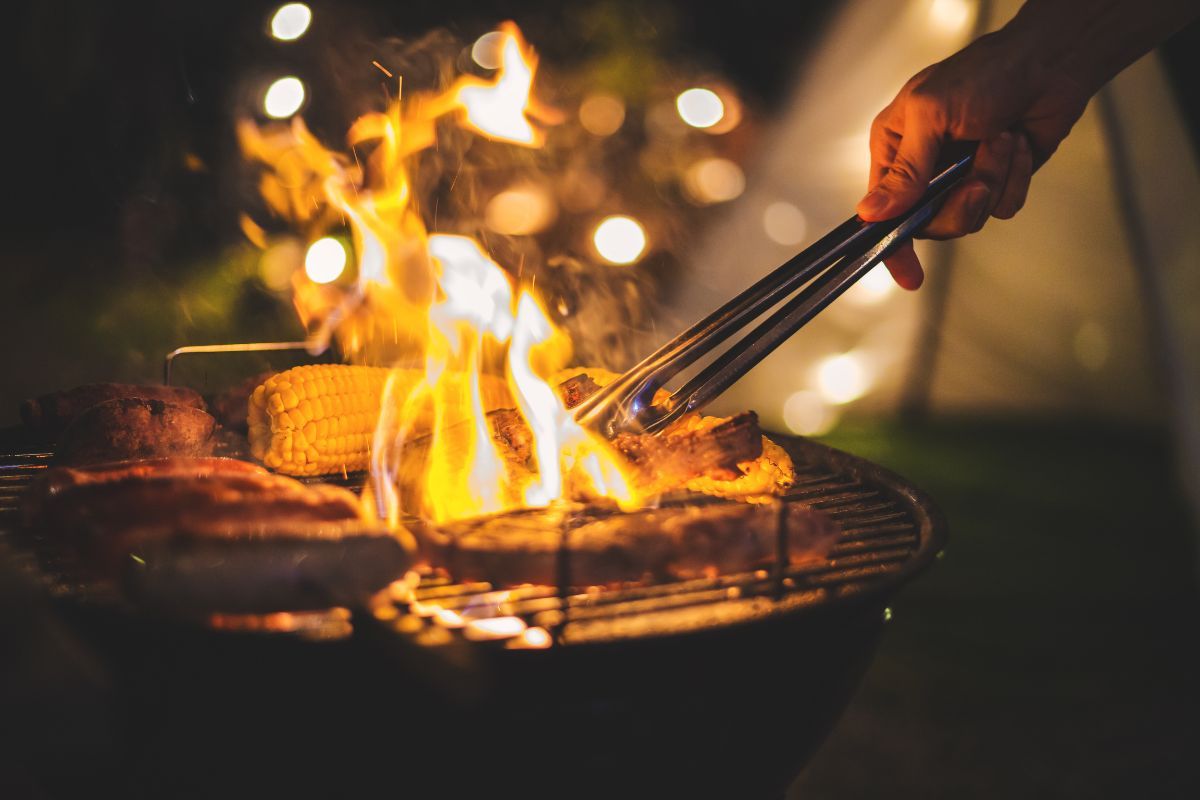
Alright, let's get personal. Your camping style is as unique as you are, and it heavily influences whether a tent or a pop-up camper is your go-to for outdoor adventures. It's all about matching your gear to your lifestyle.
Lifestyle Considerations
Are you the spontaneous type, deciding to hit the road at a moment's notice?
Tents are perfect for that grab-and-go lifestyle. Easy to pack and carry, they're ideal for frequent, shorter trips or for those who like to explore off the beaten path.
Or, do you prefer the comfort of a home-away-from-home, especially on those longer trips with family?
A pop-up camper can make these excursions more comfortable and convenient, offering a stable shelter and amenities that make camping with family a breeze.
Pros and Cons for Different Camping Preferences
- Car Camping: Tents are super for car camping – easy to pack and set up in designated spots. But if you're looking for more comfort, a pop-up camper provides a bed and kitchen on the go.
- Long Camping Trips: For extended stays, a pop-up camper offers the comfort of a bed and space to move around, making it feel more like a home.
User Experiences and Reviews

Tent campers often talk about the deep connection to nature they feel and the simplicity of packing a tent on their back. It's about the adventure, the stars overhead, and the sounds of wildlife.
The downside? Dealing with inclement weather and the lack of certain creature comforts.
Pop-up camper enthusiasts love the convenience and comfort. There's a joy in having a cozy bed and being able to stand up inside your shelter.
However, they do mention the need for planning – ensuring your campsite can accommodate a camper and dealing with extra maintenance.
Tips from Seasoned Campers
- Pack Smart: No matter your choice, efficient packing can make a huge difference.
- Be Prepared: Always have a plan for weather changes, and know the capabilities and limits of your gear.
Frequently Asked Questions
Is a pop-up better than a tent?
Choosing between a pop-up camper and a tent depends on your needs. Pop-ups offer more comfort and are great for families, but they cost more. Tents are cheaper, easier to carry, and let you feel closer to nature.
What are the downsides of pop-up campers?
Pop-up campers can be expensive to buy and maintain. They need a vehicle to tow them and space to store when not in use. Setting them up can take longer than pitching a tent.
Is a pop-up camper considered a tent?
No, a pop-up camper is not a tent. It is a small trailer that can be towed and expanded into a camping space. Pop-up campers have more features like beds and kitchens, unlike tents.
Is it worth buying a pop-up camper?
Buying a pop-up camper is worth it if you camp often and want more comfort. They are good for families and longer trips. But, they cost more than tents and need a vehicle to tow them.
Final Thoughts
We've journeyed through the world of tents and popup campers, exploring everything from comfort and cost to lifestyle and longevity. Remember, the best choice depends on your personal camping style, preferences, and needs.
Whether you're drawn to the simplicity and closeness to nature of a tent or the comfort and convenience of a popup camper, both paths lead to memorable outdoor experiences. So, what's it going to be for your next adventure?
Got a story to share about your camping experiences? Or maybe you're still on the fence and have questions?
Drop a comment below – we'd love to hear from you! And if you're hungry for more insights, check out our related articles for deeper dives into the great outdoors. Happy camping!
Before You Go...
